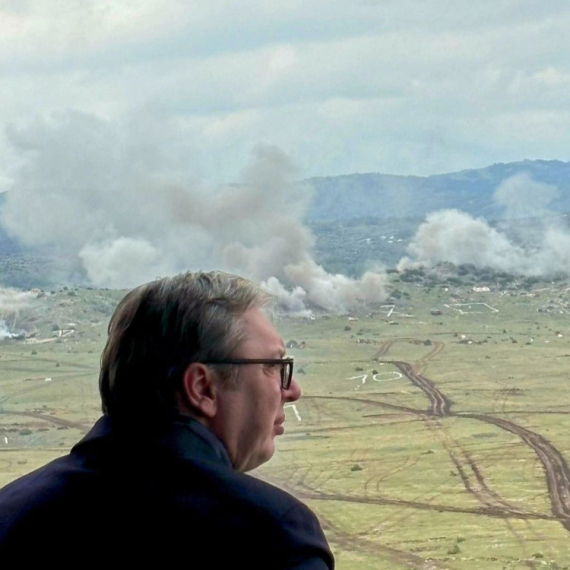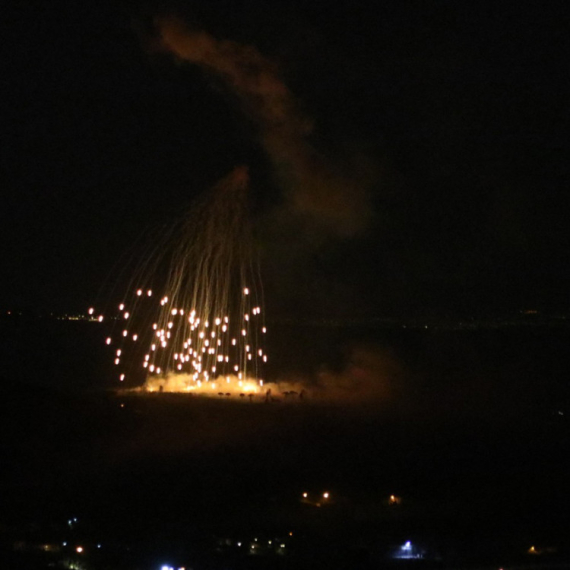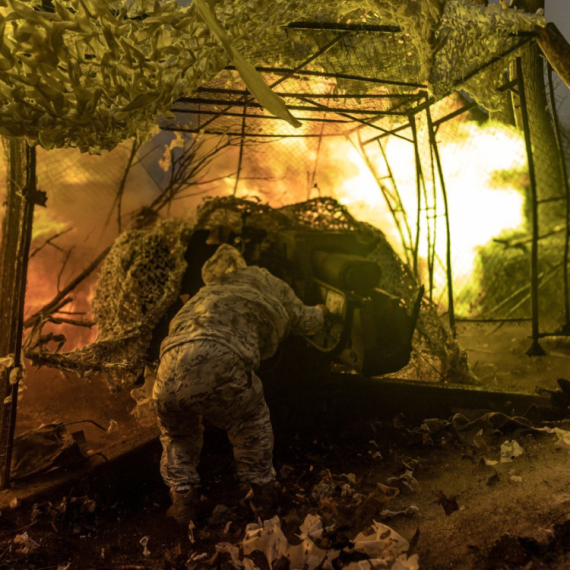President Bush's dilemma
Tuesday, 24.07.2007.
13:55

President Bush's dilemma
Our initiatives for cooperation were consistently repulsed. About one month after my arrival, following introductory rounds of meetings with government officials and others, I remember sitting in my Residence late at night reviewing the situation and accepting the hard truth that the coming years would be a thankless slog with very little to show for it. I realized, however, that I had only one choice.Every day during my mandate, to everyone, including my most trusted and senior staff, to my family and friends, I had to be the picture of optimism, hope, and confidence. Because if I were ever to let my true feelings show, the rest of the staff would only take my lead, morale would suffer, and what little progress we could make would be lost. So for almost three years, I maintained an outer façade and masked my true feelings. For a professional diplomat, this "comes with the territory" at times.
I recall my Bulgarian experience frequently when thinking about the situation in Iraq and the domestic debate it has unleashed in the United States. We are where we are in Iraq because the terrorist attacks of September 11 were a religious epiphany for President Bush.
He became convinced that God had given him the historic crusade to defeat "terrorism" writ large. His initial success in Afghanistan convinced him not only of the rightness of his cause, but also that it could be done fairly easily and effectively. So the die was cast and our military forces unleashed against Iraq.
It has all gone terribly wrong. A resurgent Taliban is now challenging our initial success in Afghanistan. On the ground in Iraq, none of the three ethnic groups (Kurds, Shiite and Sunni) accept our vision of a unified, democratic Iraq. The Kurds want their own country. The Sunni want to go back to the days of Saddam when their minority absolutely ruled all of Iraq.
And the Shiites want to impose their own rule. The government in place reflects these three extreme and mutually irreconcilable differences. It has no real power and various elements within it conspire to further the aims of one ethnic group or another. Islamic extremists are using the impasse to strengthen themselves and their cause. Iran is quietly encouraging the violence and unrest, knowing full well it is bleeding our strength away and keeping our attention focused away from it.
There is absolutely no possible way that outside military force will succeed in dissuading any of the three ethnic groups from their goals. All we can hope to do is to temporarily prevent the current unstable situation from getting catastrophically worse. In other words, our soldiers are dying, our resources are being depleted, and our international role weakened simply to artificially maintain a "status quo" filled with suicide bombers, the flight of Iraqis out of their country, and a government unable or unwilling to take the hard measures that our "action plans" keep demanding.
The domestic "tipping point" on the War was reached many months ago. A recent poll showed that seven out of ten Americans want nearly all troops out of Iraq by April and that only 29% of Americans approve of President Bush's performance. The current Democratic control of Congress reflects, more than anything else, this anti-war sentiment. The problem, however, is that every possible solution has the real chance of making the situation catastrophically worse.
It is entirely realistic to see scenarios involving regional conflict; vicious civil war in Iraq far more violent than anything to date; and the establishment of solid terrorist havens exactly like we set out to destroy in Afghanistan in the first place. The Democrats very cleverly are insisting on setting a troop withdrawal date without getting into any specifics on a course of action. This is because there are widespread differences among them (and among Republicans) about just what should be done.
President Bush's dilemma is that he knows full well that the current policies are not working. But if he ever admits this or shows any uncertainty whatsoever, two things happen. First of all, it will be an admission of sorts that his Administration has mishandled Iraq. But secondly, it would destroy his tenuous and fragile control over Congressional Republicans on this issue. He would lose control over Iraq policy.
His strategy therefore is to continue to emphasize the positive and point to small signs of progress, while trying to delay any change of course. At times this leads to "Alice in Wonderland" moments such as the White House Spokesperson excusing the Iraqi Parliament's decision to go on vacation as understandable, given the "heat in Baghdad during the summer."
In the short term, he is pleading for a delay in any action for two months until September, when an evaluation of our "surge" is due from General Petraeus. One can bet, however, that the report will be sufficiently ambiguous and have sufficient positive signs to justify the President asking for yet more time for the "surge" to work.
His real objective, however, is to pass the resolution of this problem off to his successor and the blame to his opponents. I am absolutely positive that five years from now, a retired President Bush will be giving interviews saying that if only we would have stayed the course, the situation in Iraq would have been much better. He and his supporters will be citing any terrorist attack in the United States as proof that they were right in trying to take the "War on Terror" to the enemy far from American shores.
What mystifies me, however, is that given the importance of Iraq to this President and to the United States, why has he and his Administration been so unwilling to really use the full force of American diplomacy and power to move it in a better direction? Why haven't we had our most senior statesmen using a "Dayton" approach and insisting that the various ethnic groups come to agreement on sharing of oil revenues and other issues?
Why are we emphasizing the military aspect of the problem when it cannot be solved without an underlying political agreement? My only answer at this point is that despite the wealth of experience of some cabinet members, there is no real understanding in the Administration on how to fully use and project American power and influence.
I believe, therefore, that all we can look forward to for the immediate future is a desperate holding action by the President to keep control of Iraq policy. As more and more Republicans, sensitive to the Public mood and coming elections, start to fall away, this will be increasingly difficult to maintain.
This will probably occur sometime this fall. Whenever this does happen (in the form of binding legislation mandating the beginning of troop withdrawals by a fixed date with enough support to override a Presidential veto), the President will immediately use the remaining period of his term to consistently try to shift the blame to the Democrats and his other opponents for the debacle of Iraq.

























































Komentari 8
Pogledaj komentare